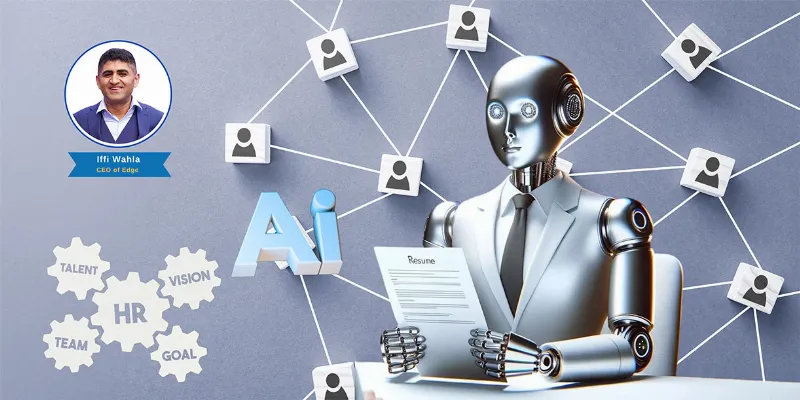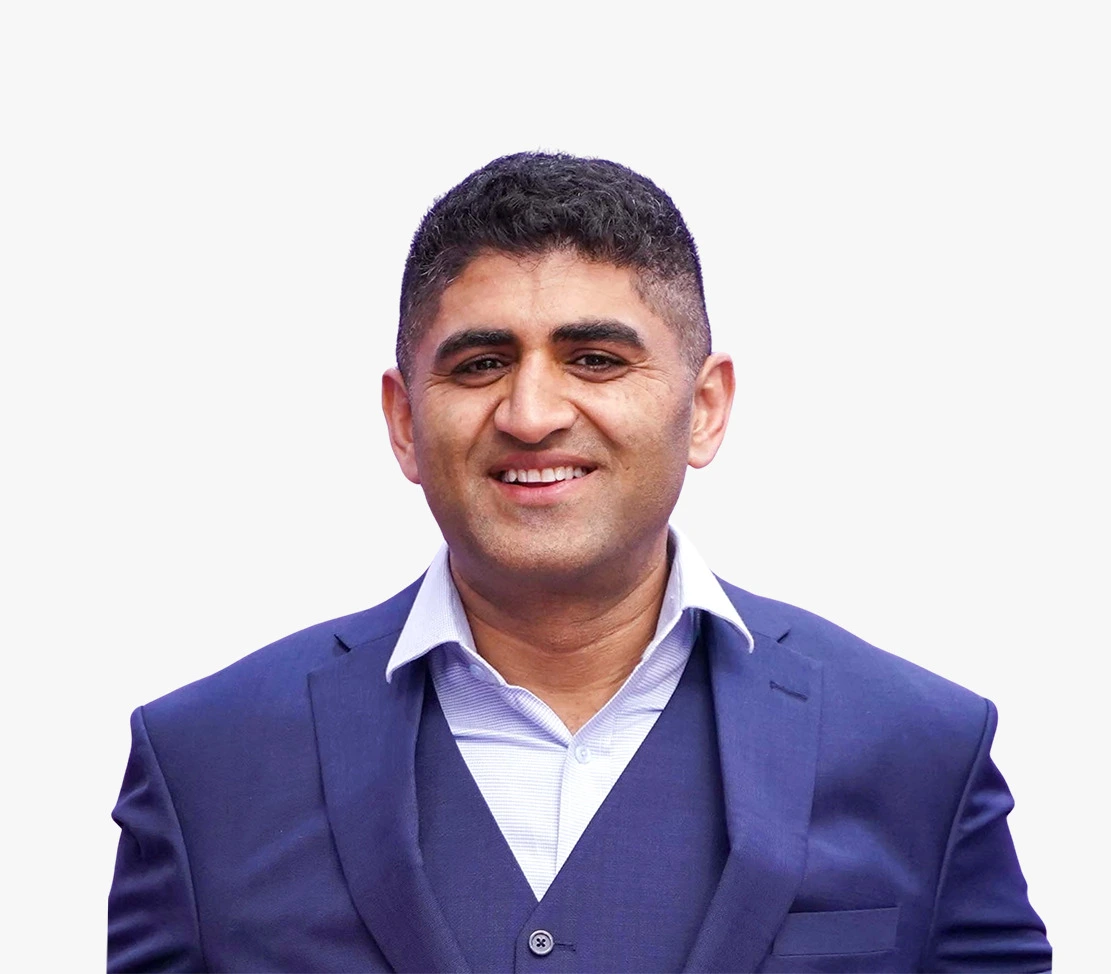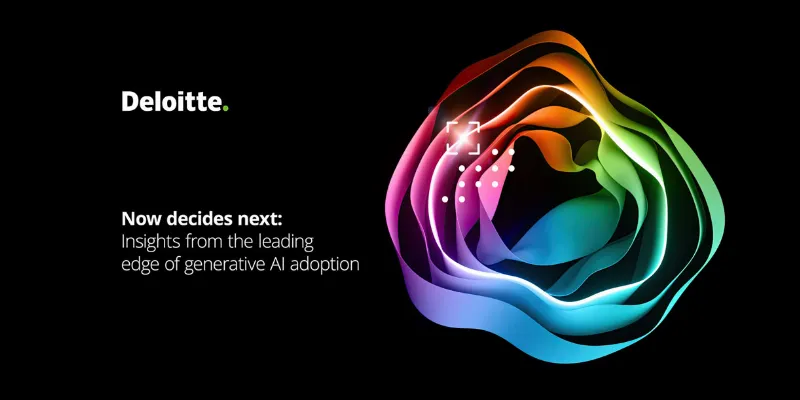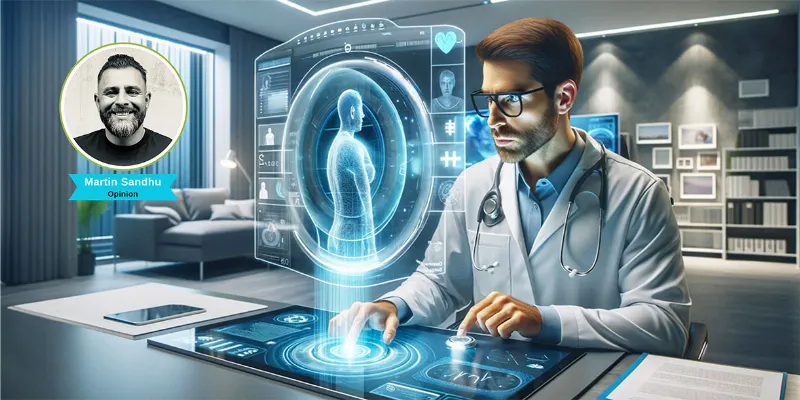Can Artificial Intelligence Help Bridge the Gap in Healthcare Tech Skills?


Opinion |
10 May 2024
Running an efficient and profitable healthcare business in today’s landscape requires balancing a huge range of factors - many of which are out of the business owner’s hands - not least rising costs and regulatory complexities. The huge technological advancements we have seen in recent years have added an additional layer of difficulty, with many healthcare businesses now requiring individuals who have both a medical and technical background, as breakthroughs in areas such as Artificial intelligence (AI) and genetics create greater need for specialists.
Iffi Wahla, Co-Founder and CEO of global hiring platform EDGE, discusses how healthcare businesses can leverage AI to address the skills gap facing the sector.
Most companies often require general skills in some of the most sought after fields - data science, UX and cybersecurity, and yet there are significant skill shortages in these areas impacting the ability to find the right expertise locally. Yet when it comes to administration and staffing, these same technological developments and changing working practices are opening the door to a major shift in healthcare hiring, thanks to groundbreaking AI technologies that offer new opportunities to identify, attract, and secure top talent in the healthcare sector.
Ask any senior healthcare leader what one of their main challenges is and they will undoubtedly mention finding the right expertise for their business. Staff shortages and retention problems are the root cause of a lot of systemic issues. This is where AI can make a real difference.
An end-to-end AI driven recruitment process can vastly reduce the time it takes to find and onboard staff. It can also allow for more precise targeting of applications and a fairer, unbiased process. And crucially allows businesses to expand their reach globally, with the increase in remote working opportunities, meaning that it becomes easier to find employees with the skills that you are looking for.
The easiest starting point is to use generative AI to create job descriptions, the application process and job adverts. From there, you can use AI applications to create automated resume screening to instantly identify the people you really want to interview. One of the added bonuses of automated screening using AI is that the algorithm can be trained to find exactly the type of personality you would want working in your office. AI can go beyond simply reviewing qualifications to looking at the attributes of the individual hidden in their resume or application.
Remember, at the outset it is key to have human oversight over this process. Review a sample of rejected applications to ensure you and your AI are of the same mind. A good AI recruitment system will become more and more accurate as it understands the type of applicant that you ultimately end up hiring. AI itself can also help challenge you on what you consider to be an ideal recruit. It may be that some hiring and retention issues come down to the recruiter not really understanding who is the best fit for their office. An AI screening process may bring forward people that you may have otherwise rejected.
When it comes to the interview process itself, AI can also help with generating questions and creating metrics on which you can assess individuals. You can even let an AI system analyze the responses and make the recommendation on the best hire.
After recruitment, AI driven digital onboarding can vastly reduce the administration and time taken to bring new staff up to speed. It can be used to create tailored training programs and assess progress.
Even if you use AI to automate just one aspect of your recruitment process it will impart significant time and cost savings. From there you can look at other ways it can improve the administration of your practice. The most obvious opportunity is through automating scheduling and communication with patients. AI chatbots embedded into your website can answer routine questions and funnel patients into the right communication channels. An AI scheduler can also ensure that appointments are booked in the most efficient manner. By using AI within your CRM software you can create automated triggers which keep patients updated with the latest news on their appointments, test results and other regular queries.
It is important to create some ground rules and a strategy that will allow you to use AI services in a safe and thoughtful manner. It’s worth remembering that no AI system is infallible - it requires a strong degree of oversight to ensure that it is functioning in the way it was intended. To be able to do this you and your team need to understand the fundamentals of how AI operates and this requires at least a rudimentary understanding of data analysis. Luckily, this can be easily acquired through online training. The key is to ensure that these skills are dispersed throughout your practice so that every staff member feels empowered to question when the AI system may be malfunctioning.
With healthcare companies needing to look at cost-effective ways to stay ahead of the competition, and the commercial landscape evolving rapidly as the digital bar continues to be raised at an unprecedented speed and scope, AI can offer a route to keeping up to speed with the changes afoot.











Comments
No Comments Yet!